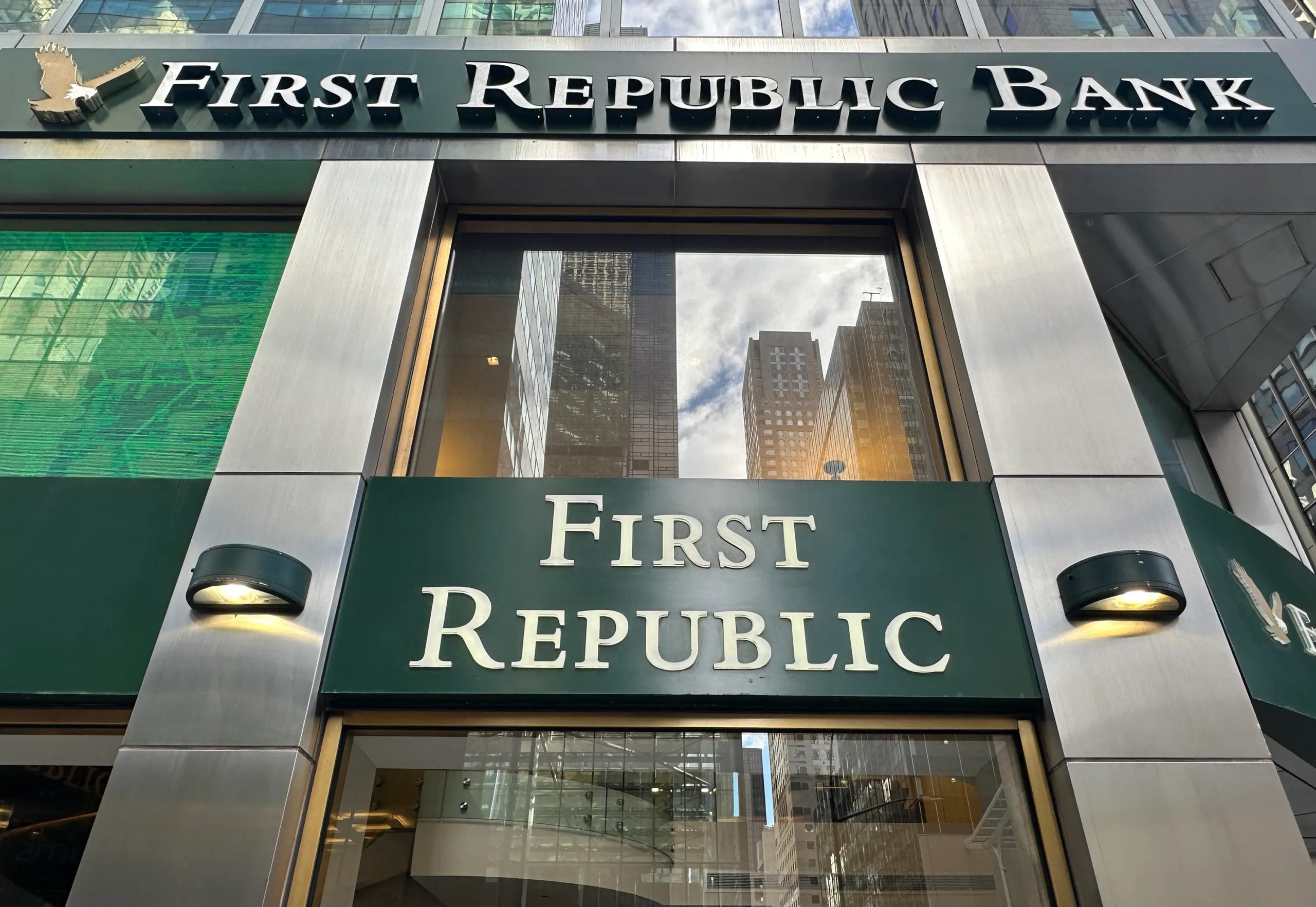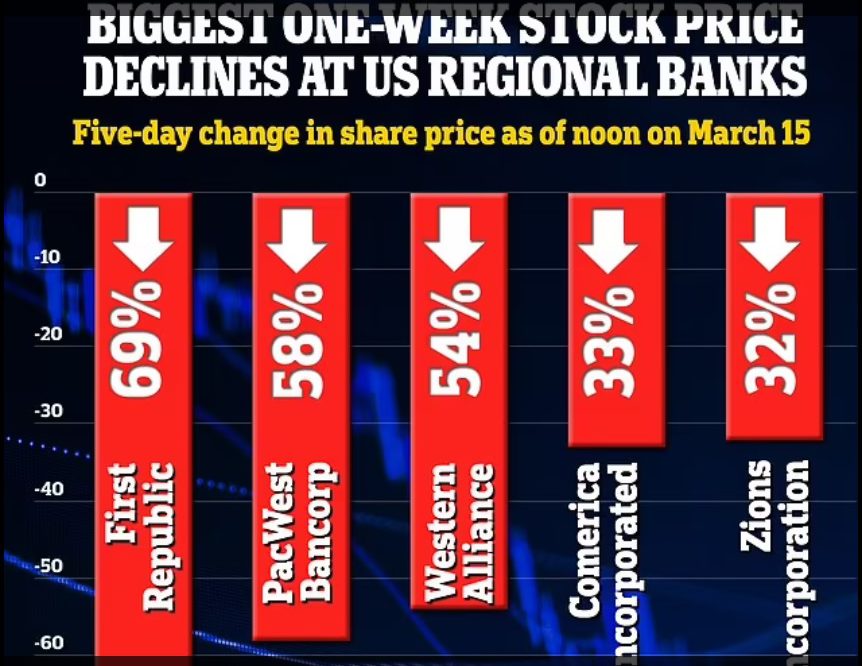The Big Banks Have Bailed Out First Republic, But Who Is Going To Bail Out The Big Banks When They Start Failing?
Every single day there are more twists and turns to this new banking panic. In fact, we learned that the big banks have gotten together to save First Republic. That is good news, because a collapse of First Republic bank would have been a major catastrophe. But First Republic is just one in a very long list of banks that are in very serious jeopardy. For months, analysts relentlessly warned that our financial system could not handle higher interest rates. It was inevitable that financial institutions would start to break, and that is precisely what has occurred. We are in far more trouble than most people realize, and we are still only in the very early chapters of this crisis.

Initially, there were rumors that a buyer was being sought for First Republic, but instead the “too big to fail” banks agreed on a plan to deposit a total of 30 billion dollars into the troubled institution.
A group of financial institutions has agreed to deposit $30 billion in First Republic bank in what’s meant to be a sign of confidence in the banking system, the banks announced recently.
Bank of America, Wells Fargo, Citigroup and JPMorgan Chase contribute about $5 billion apiece, while Goldman Sachs and Morgan Stanley deposit around $2.5 billion, the banks said in a news release. Truist, PNC, U.S. Bancorp, State Street and Bank of New York Mellon deposit about $1 billion each.
They have all agreed to keep that money in First Republic for at least 120 days, and you can read here the joint press release that they issued.
Needless to say, executives at First Republic are greatly relieved. So much money had been pulled out of the bank in recent days, and at one point the stock was selling for less than 20 dollars a share.
First Republic’s stock, which closed at $115 per share on March 8, traded below $20 at one point on March 16. The stock was halted repeatedly during the session and rose to $40 per share at one point, up more than 20% on the day.
Did insiders at First Republic know that this was coming?
First Republic Bank executives quietly sold nearly $12 million worth of its stock in just the past three months, according to the Wall Street Journal.
Executive Chairman James Herbert II sold the most of any of the other insiders, off-loading a whopping $4.5 million worth of shares since the start of the year.
In all, four of the struggling bank’s top executives sold $11.8 million worth of stock so far this year, at prices averaging just below $130 a share, the Journal found.
Analysist say you only make money in the stock market if you get out in time.
And those guys got out in time.
So why was First Republic in so much trouble?
Well, just like Silicon Valley Bank and Signature Bank, they were sitting on enormous unrealized losses because the government bonds that they were holding had lost a ton of value due to rapidly rising interest rates.
Ultimately, those unrealized losses made a potential purchase of First Republic quite “unappealing” to the “too big to fail” banks.

In the great financial crisis, several struggling banks were bought for cheap by the larger firms in an effort to help calm the banking system. However, the unrealized losses on First Republic’s bond portfolio due to last year’s rapid rise in interest rates have made an acquisition unappealing, the sources said.
The markdown, which would involve the bank’s held-to-maturity bond portfolio, would amount to about a $25 billion hole on First Republic’s balance sheet, sources told.
But the “too big to fail” banks are collectively sitting on hundreds of billions of dollars in unrealized losses themselves.
And they also have trillions of dollars worth of exposure to the derivatives bubble.
So who is going to bail them out when they start failing?
That is a question that we all need to start asking.
And as trouble increasingly shakes our banking sector, that is going to have enormous implications for our economy as a whole.
A fall in bank deposits will lead to less “high-powered” money, i.e. bank reserves, in the system, which means considerably tighter financial conditions than hitherto experienced. That would be the final straw for an economy that was already highly likely to enter a recession as soon as the summer.
In order for our current economic system to function effectively, we need stable banks, and we need people to have faith in those banks.
For the moment, most ordinary Americans say that they still have faith in the institutions where they are currently doing their banking.
Seven in 10 people surveyed said they still have faith in banks. That compares with two-thirds of customers who said they trust banks in February, the Morning Consult survey found.
But the same can’t be said for those at the top of the economic food chain.
In fact, many of them are now transferring vast sums out of their banks while they still can.
Wealthy investors and family offices are moving more of their money out of bank cash balances and into Treasuries, money markets and other short-term instruments, according to wealth advisors.
High net worth investors typically keep millions of dollars or even tens of millions in cash in their bank accounts to cover bills and unexpected expenses. Their balances are often way above the $250,000 FDIC insured limit. Following the collapse of Silicon Valley Bank and potential cracks in the network of regional banks, wealth advisers say many clients are now asking fundamental questions about how and where to keep their cash.
This crisis is just getting started.
Every domino that falls is just going to make everything even worse, and ultimately the entire system is headed for an unprecedented meltdown.
So analysts encourage you to do whatever you need to do to protect yourself, because the situation is only going to get crazier from here on.
yogaesoteric
April 18, 2023
